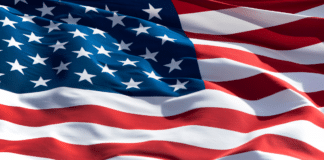China’s leadership is deeply suspicious of the international financial system, and wants to ensure that the Chinese Communist Party remains the absolute power in the land, unthreatened by fast-growing corporate giants.
What’s new: That lesson was learned the hard way this week by Didi, but the repercussions are likely to be much larger. Already, Chinese fitness app Keep has decided to scrap its planned $500 million IPO in New York.
Why it matters: The core paradox of modern China — that it is a hypercapitalist success story while remaining a Communist dictatorship — is resolving itself in favor of the latter. China’s moguls — and foreign shareholders — should expect a lot more turbulence ahead.
Driving the news: China cracked down on Chinese ride-hailing giant Didi immediately after it went public in New York last week, hitting the newly-public company with a long-weekend triple whammy.
- On Friday, China blocked Didi from adding new users, citing cybersecurity worries; on Sunday, it forced Chinese app stores to delete the app altogether; and on Monday, it leaked to the WSJ the explosive news that it had urged Didi to delay its IPO, but the company had gone ahead with the listing anyway.
- In case anybody didn’t get the message, China on Tuesday then announced “a system for extraterritorial application of capital market laws,” with the stated purpose of avoiding “illegal securities activities.”
- In the crosshairs: The loophole that allows Chinese companies to go public in New York. Matt Levine has the best explainer. (American politicians, too, are often critical of this system.)
By the numbers: Didi’s shares closed at $11.91 on Wednesday, 15% below the $14 IPO price and 34% below the $18 at which they started trading a week previously.
- The total market capitalization of Chinese companies listed on U.S. exchanges is more than $2 trillion, although much less than that is actually owned by U.S. investors.
The big picture: The current crackdown should not come as a surprise to observers of Ant, or even Hong Kong, where hometown billionaire Jimmy Lai has been imprisonedfor speaking out against the Chinese regime.
- Hong Kong and much of the West spent decades convinced that the riches of capitalism were a tide that would carry freedom and democracy into China. We were wrong.
- King Canute might not have been powerful enough to turn back the tide, but Xi Jinping is.
How it works: A happy, prosperous society is good for China — and if a market economy can help achieve that, great. But when an individual’s wealth starts to become a rival power base, or when foreigners start owning Chinese property, Beijing will have no compunctions asserting its primacy.
The bottom line: When economics meets politics, politics always wins.






